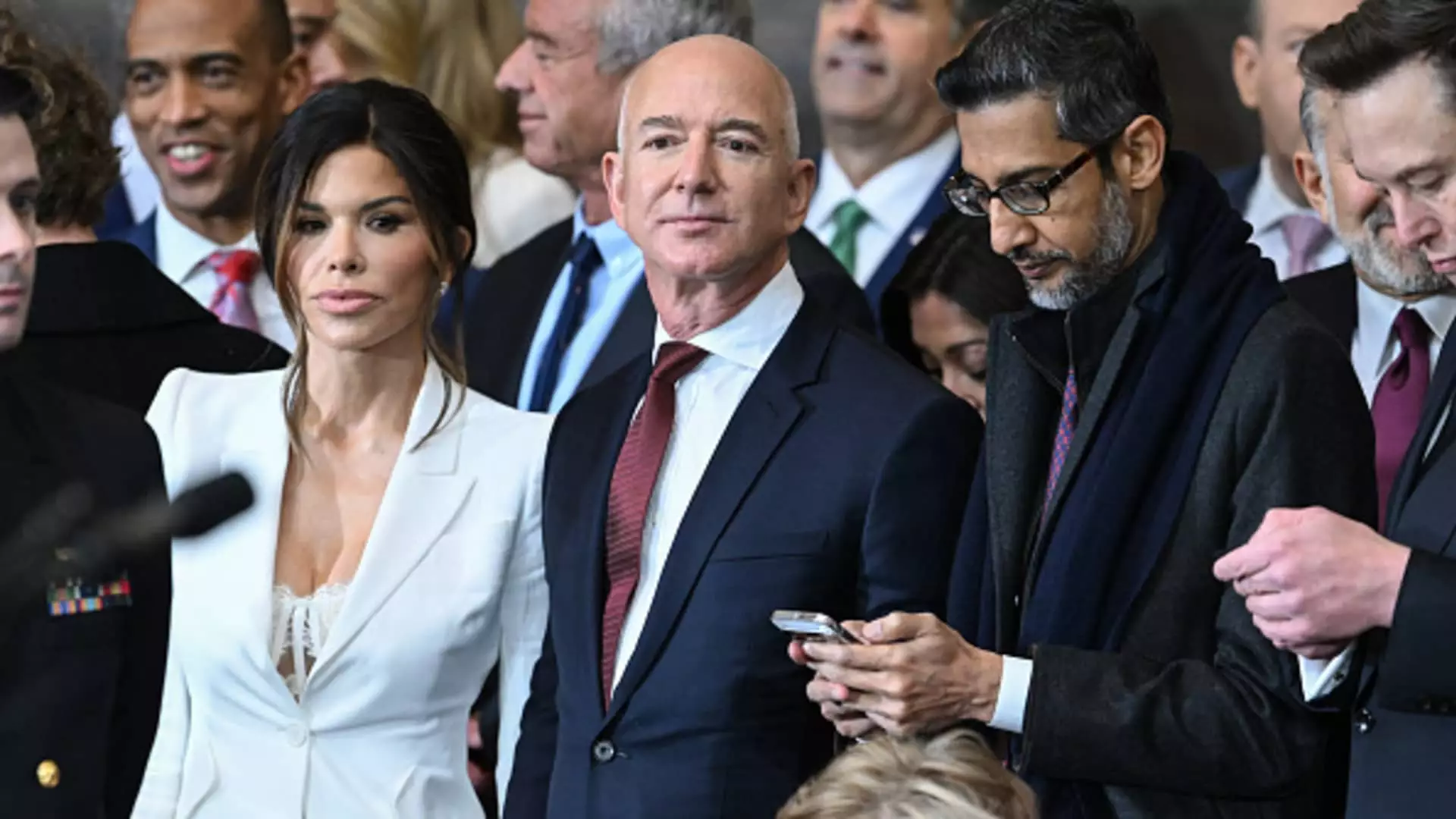In a bold move that has ignited fierce debate within journalistic circles, Jeff Bezos, the founder of Amazon and owner of the Washington Post, recently announced a significant change to the newspaper’s editorial policy. This shift, which centers on an unwavering commitment to “personal liberties and free markets,” has led to significant backlash from various quarters, raising questions about the implications for journalistic integrity and the role of media in a democratic society.
In his communication with the Post staff, Bezos laid out a new editorial philosophy that favors specific ideological viewpoints over a broader spectrum of opinion. According to his statement, the opinion pages will no longer entertain opposing views that challenge the core tenets of free markets and personal liberties. This directive is not just a minor adjustment but signals a fundamental transformation of the opinion section, with Bezos stating that such contrasting views will be left to other publications. This shift does not merely delineate the type of content the newspaper prioritizes; it effectively narrows the public discourse on critical issues.
Bezos’s rationale rests on the argument that the vast wealth of opinions available on the internet negates the need for a newspaper to strive for a “broad-based opinion section.” However, critics argue that this reasoning undermines the core mission of journalism—facilitating a diverse and nuanced discussion of important societal issues. By opting to exclude dissenting opinions, the newspaper risks becoming a platform that merely validates a singular viewpoint rather than fostering rigorous debate.
The announcement has not gone unnoticed among journalists at the Post. Former editor Marty Baron expressed his dismay at this policy shift, labeling it “disgusting” and indicative of broader trends towards censorship in media. Baron’s tenure was marked by a commitment to maintaining journalistic independence in the face of external pressures, including those exerted by political figures. His condemnation reflects a deep concern that Bezos’s new directive jeopardizes that very independence.
Additionally, David Shipley, the editorial page editor who has been with the Post for over two years, opted to resign rather than conform to the new policy. His departure underscores the seriousness with which many staffers view this change; it sends a clear signal that not all journalists are willing to conform to a narrowed editorial vision. The resignation of established journalists, coupled with the stated intentions of prominent reporters to resist potential encroachment into their reporting, marks a significant turning point within the organization.
The move to restrict opposing viewpoints comes at a politically charged time. With the 2024 presidential election approaching, the stakes are particularly high. It exposes the nuanced relationship between media ownership and editorial independence. Critics emphasize that Bezos’s decision may lead to accusations of bias, particularly as he has been linked to members of President Trump’s administration. With allegations of “fake news” already plaguing the Washington Post, this policy shift could further erode public trust.
Moreover, the implications of this decision extend beyond the Post itself. It raises pivotal questions about the role of technology magnates in shaping public discourse. Should ownership dictate the editorial direction? While it is not unheard of for media moguls to influence their publications, Bezos’s recent directive is markedly prescriptive, potentially setting a dangerous precedent for the industry. This could prompt other influential media figures to follow suit, further fragmenting the media landscape and leading to the proliferation of niche perspectives at the expense of nuanced debate.
Going forward, the Washington Post faces significant challenges. The public’s reaction to the new editorial policy will likely shape its future viability. With reports of subscription cancellations following the announcement, the implications for the paper’s financial health remain uncertain. Maintaining a diverse readership while adhering to a restricted editorial approach will be complex.
However, there are potential opportunities as well. By carving out a space for discussions around personal liberties and free markets, the Post could appeal to a specific audience that feels these viewpoints are marginalized in mainstream media. The challenge will be to engage in a dialogue that remains credible and representative of broader societal debates, while steering clear of becoming an echo chamber.
Jeff Bezos’s decision to reshape the Washington Post’s editorial focus marks a pivotal moment in the intersection of media, technology, and politics. As the newspaper navigates this turbulent landscape, it will be crucial for both its leadership and its staff to remain committed to the fundamental tenets of journalism—truth, diversity of opinion, and accountability, lest they diminish their role in fostering an informed public.

